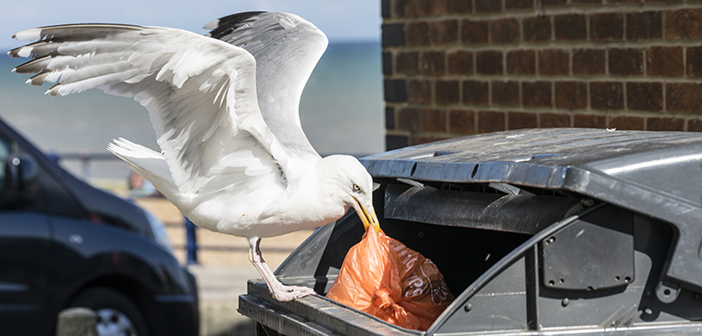Rentokil Pest Control is urging the public and businesses to be cautious with gulls as summer approaches. Residents in coastal urban areas should be particularly vigilant as increased gull activity at this time can lead to potential interactions between the public and these birds.
Late spring and early summer witness heightened gull activity as they generally nest and lay eggs in April and May. During this time these birds can become extremely aggressive and protective of their nests, eggs, and young chicks, as they search for food for their young.
Paul Blackhurst, head of Technical Academy at Rentokil Pest Control, said: “Gull droppings (also known as guano) also present a hazard as they can contain bacteria including E. coli and Salmonella. This can lead to the spread of infection through surface contamination or inhaling bacteria from dried droppings.
“The nests and roosting sites of birds also attract several pest insects such as bird mites, textile beetles, and fleas, so the presence of gulls at a home or business premises can bring about infestations from other unwanted visitors.”
Mr Blackhurst said Rentokil employs several different safe and eco-friendly methods in order to help protect premises from gulls, including the installation of bird spikes and bird netting. “Another solution offered by Rentokil, as part of an overall treatment strategy, is the Rentokil Intelligent Bird Scaring (RIBS) device,” he said. “This innovative technology offers an effective and sustainable approach to bird deterrence without causing harm to the birds.
“The RIBS device is designed to guard organisations 24/7 and can be controlled and monitored remotely via a tablet or smartphone app. It has an intelligent built-in system that recognises different bird species and identifies the best scare tool from a broad range to deter each of them.”
Gulls can pose a significant nuisance for homeowners and businesses during the summer, particularly for those located in coastal areas.
“It’s crucial to approach them with caution as they are likely to be very protective of their young and will be busy scavenging for food,” he said.


